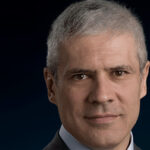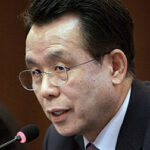Han Seung-soo, former Prime Minister of South Korea and, Boris Tadic, former President of Serbia, led the Second High-Level Mission to Myanmar within the “High Level Support for Effective Dialogue in Myanmar: Towards Democratic Transition and Shared Societies” Project funded by The Charitable Foundation.
The Civil Society Forum “Empowering People for Peace and Development in Myanmar” was a joint initiative of the nongovernmental organization Ecodev/ALARM and Club de Madrid which took place on May 29th, in Yangon. The forum focused on shared learning among civil organizations and how to contribute to political dialogue process realizing Federalism in Myanmar. The results of the forum reflected an understanding among CSO for common interest in peace and development challenges. The attendees included more than 30 CSO leaders working on local development issues in different regions of Myanmar.
Prime Minister Han and President Tadic were the key note speakers in the forum and shared lessons and good practices from policies and peace process in former Yugoslavia and Serbia and South Korea.
Prime Minister Han stated that “foreign investments to build local factories were one of the successful initiatives in Korea development strategy”. He also highlighted the importance of water and natural resources in a country like Myanmar, as well as the key issues related with the reconciliation process “because our economy was strong enough, economic prosperity was one of the main inputs for peace”.
President Tadic stressed that “you cannot create national cohesion and Shared Societies in Myanmar in order to provide opportunities for everyone without decentralisation. It is the cornerstone of national integration aimed at avoiding divisions””. He underlined how decentralisation is the best possible framework to protect minorities. He compared the current political context of Myanmar with the Serbian example “the kind of federalism to be applied in Myanmar, a country with many conflicts in the past, is something to be discussed among social groups and political leaders”. President Tadic encouraged the attendees to thoroughly think through the economic development model to be followed by Myanmar and the importance of civil society must be involved in it: “the role of civil society can be crucial in order to be more efficient and competitive”.
On May 29th and 30th, the Club de Madrid co-organised with the Organization for Economic Cooperation and Development (OECD) the workshop: “Modernising Myanmar´s economy building on a strong agricultural sector” in the framework of the OECD’s Multi-dimensional Review of Myanmar. The workshop focused on knowledge sharing experiences and translating recommendations of the multi-dimensional review into concrete actions that can be relevant to Myanmar. The participants included Government representatives and Civil Organizations leaders involved on agriculture and inclusive development issues. The members of the Club de Madrid presented case studies based on their political experiences in leading their countries through peace and reconciliation processes and economic transformation.
Prime Minister Han presented “How did Korea grow so fast? Lessons for developing countries”, due to two main factors: an effective, strong and clear leadership inspiring challenges for the Korean population and; investment on education and human resources as a key aspect to achieve social inclusion.
President Tadic highlighted in his speech: “Rebuilding a post-conflict state and reconciliation within Serbia and the region”, the responsibility of a society in reconciliation processes and how “decentralisation is very often a solution to address inequalities and ethnic differences”. Decentralisation can be a strong factor to support foreign investments. President Tadic also highlighted that “in Serbia we have witnessed how marginalizing people from other cultures or ethnic groups only weaknesses society”. He also mentioned that one of the key actors in the Serbian peace process was the army, “the army needs to be involved in the reform process in order to achieve the transformation needed by the country”.
The mission also included bilateral meetings with representatives of the Economic Committee of the opposition National League for Democracy party, who exchanged views on current political scenario and outlooks with the CdM Members, Hope International, EcoDEV/ALARM, Demo Finland and a lunch with representatives of the European Union Delegation, German Embassy, United Kingdom Embassy and Korean Embassy to Myanmar.

